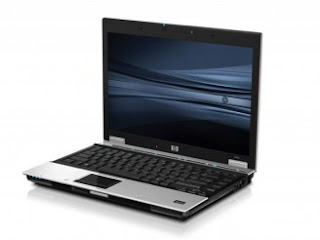September 9, 2008 Many notebooks on the market have us reaching for the power cord http://en.wikipedia.org/wiki/Power_cord after just a few hours of continuous use, but HP’s latest announcement promises to let you stay away from the mains supply for quite a while longer. Using with an optional ultra-capacity battery, the company’s new HP EliteBook 6930p offers up to 24 hours of battery runtime, a feat achieved by a combination of the battery design itself and energy saving components like LED displays and Intel® solid-state hard drives (SSD ssd ). Good news for all of us who have ever wandered around an airport looking for a socket.
“All-day computing has been the holy grail of notebook computing,” said Ted Clark, senior vice president and general manager, Notebook Global Business Unit, HP. “With the HP EliteBook 6930p, customers no longer have to worry about their notebook battery running out before their work day is over.”
The magical 24 hour figure was arrived at using an industry-standard benchmark test and in terms of power-saving components, the company’s release states that the “HP Illumi-Lite LED display improves battery run time by up to 4 hours compared to traditional LCD displays http://en.wikipedia.org/wiki/liquid_crystal_display , while the Intel SSD provides up to a 7 percent increase in battery life compared to traditional hard drives.”
The EliteBook 6930 features a 14.1-inch diagonal widescreen display (the mercury-free Illumi-Lite LED is optional) and offers a number of other carrots to mobile professionals, namely a lightweight configuration that starts at only 4.7 pounds (2.1 kilograms), a durable inner magnesium http://en.wikipedia.org/wiki/Magnesium shell, a shock-resistant hard drive and a spill-resistant keyboard. The unit http://en.wikipedia.org/wiki/The_Unit also meets MIL-STD 810F military-standards for environmental reliability, operation at extreme temperatures and withstanding vibration and high humidity http://en.wikipedia.org/wiki/Humidity .
Read more @ Gizmag


